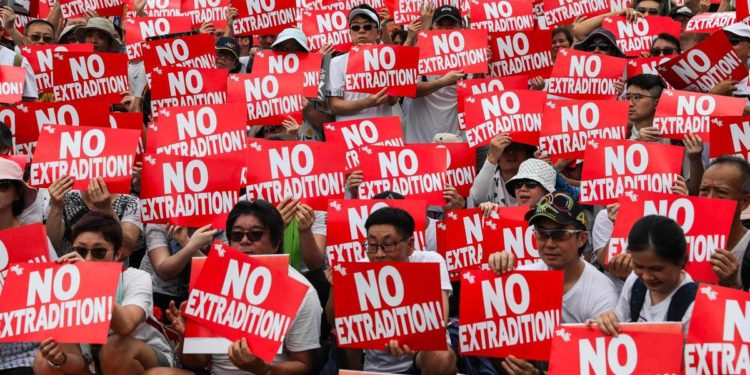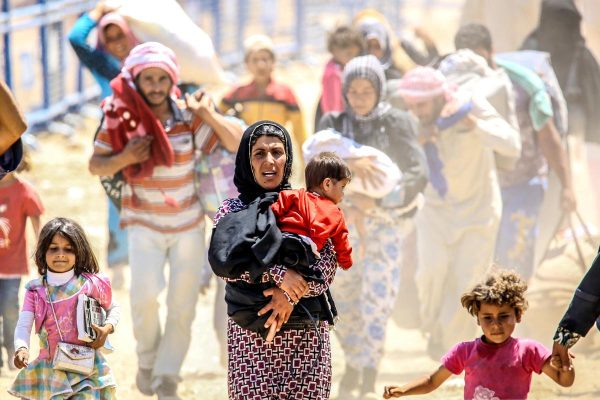What are the roots of the recent Hong Kong Protest?
Starting in early 2019, on March 29, there were multiple protests that took place in Hong Kong within a short period of time. It is beneficial for people to dig deeper into the root causes of this. With people’s confusion about the cause, process, and community’s opinion, it is helpful to review the details behind the scenes.
What Caused the Protest?
It all started with a case of homicide.
As documented in the New York Times’ article “The Murder Case that Lit the Fuse in Hong Kong” by Daniel Victor and Tiffany May, the earliest cause of the protest was a case of homicide that took place in Taiwan. In 2018, “Poon Hiu-wing” was murdered by her boyfriend “Chan Tong-kai,” where the two Hong Kong residents were visiting as tourists. Because they were visitors, the case had connections with the nonexistence of the extradition law in Hong Kong. According to Legal US, extradition is the surrender of a person (Chan Tong-kai) charged with a crime (the homicide) by one state or country (Taiwan) to another state or country (Hong Kong).
According to one of China’s official media outlets, the Xinhuanet’s article, “Jinping Xi’s meeting with Zhengyuee Lin” states that because there is no extradition treaty between Taiwan and Hong Kong, the Hong Kong government proposed two new amendments, the Fugitive Offenders Ordinance (Cap. 503) and Mutual Legal Assistance in Criminal Matters Ordinance (Cap. 525). Their original hope was the “establishment of a mechanism for case-by-case transfers of fugitives to any jurisdictions with cities that lack a formal extradition treaty”. One such jurisdiction would be mainland China.
Quickly, the protest developed social consequences.
The inclusion of mainland China in the amendments is a concern to different sectors of Hong Kong society. Democrats fear the consolidation of the regional jurisdictions and that mainland Chinese laws administered by the Communist Party will erode the “one country, two systems” principle. Opponents of the amendment urged the Hong Kong government to explore other avenues, such as establishing an extradition arrangement solely with Taiwan.
Many youth forces were against these amendments too.
According to the New York Times’ article “‘Retake Hong Kong’: A Movement, a slogan and an identity crisis”, after the reunification of Hong Kong in 1997, the Hong Kong Government tried to enhance Hong Kong’s recognition of China in various ways. Through infrastructure construction and many other methods, the Hong Kong government has brought the two sides closer together, but some Hong Kong population’s trust in the Government of the People’s Republic of China is still scarce. There are complaints about the amendments’ impact on Hong Kong’s freedom, the interference of the People’s Republic of China and the lack of action by the Hong Kong Government.
The protests had many connections with cultural aspects too. According to the City University of Hong Kong’s research in the article “Hong Kong’s young people’s happiness” by Sheryl Tian and Tong Lee, “The cultural differences between Hong Kong and mainland China have led to the Hong Kong independence movement. Although Hong Kong is considered an international financial center in Asia, high inflation and currency appreciation have led to its ranking fourth in the global cost of living.” According to a survey by the City University of Hong Kong, due to the long-standing backlog of deep-seated social, political, economic, and community conflicts, the youth were already feeling dissatisfaction before the protest. So they are using the protests as an abreaction.
What Happened?
According to the Wall Street Journal’s article “Mass demonstrations break out in Hong Kong over amendments to extradition regulations” by Natasha Khan, Hong Kong protesters gathered on the streets, roads, and airports. The airport, especially, was full of protestors for several months, therefore visitors weren’t able to get through. The Hong Kong police forces were actively repelling and evacuating the protestors and bystanders. During the protests, news media outlets had great bias in their coverage of the protestors and the Hong Kong police force. Some Hong Kong media consider police actions towards the protesters to be violent and need to stop as soon as possible. Mainland Chinese media generally consider police actions to be just.
What are the Effects?
Both Sina News and China Central Television News’ article “Violent demonstrations affect Hong Kong’s multi-industry people’s livelihood economy hit hard,” explore the effects of the protest.
As a result of the violence in Hong Kong, there has been a huge plunge in tourism and consumption by mainland tourists. The crowds, which used to be bustling and dense, became sparse. The head of a travel agency at The Royal Port said that the usual Huanggang Port has 200 tour groups passing through Hong Kong and is now reduced. The manager of a foreign exchange shop said their business had plummeted by 70% in a week.
The spate of violence has also caused a sharp drop in prices for hotels in Hong Kong. After about 20 countries and regions issued travel warnings for Hong Kong, tourists from Southeast Asia, Europe, and the United States considered other options than Hong Kong, and mainland visitors were also worried about being targeted by radical demonstrators. According to several booking websites, some hotels located in the heart of the business are dropping their rates. The rate for 4-star hotels are as low as HK$297 per night, which is cheaper than the hourly rate on weekdays.
Taxi drivers’ work plummeted in many districts of Hong Kong, with radical demonstrators deliberately blocking a number of major thoroughfares with “a sea of people” and roadblocks seriously affecting most bus services and other public transport services on the road.
In response to the recent economic situation in Hong Kong, Mr. Wu, an associate professor of economics at The Baptist University of Hong Kong, expressed pessimism and said “The economy was facing a double whammy of the Sino-US trade war and Hong Kong protest.” First, social events have caused emotional panic, and Hong Kong people or tourists have not felt like shopping, causing the retail sales figures to fall. Second, property prices have also fallen due to a decrease in second-hand transactions. Third, shop owners reduced their rents and dragged down the overall property market.
SSFS Community’s Opinions
After interviewing some SSFS community members, the diverse community opinion is surprisingly similar to the controversial differences in world opinions. One student expressed, “It is Hong Kong people’s own rights to continue protesting. If they think the policy isn’t fair, they should continue protesting. Because they have the freedom.” Leo, an upper school student who lives in Hong Kong, stated, “The protest had a lot of negative impacts on the Hong Kong residents. The traffic isn’t functioning, and people are afraid to go out of their apartments, because of the violent conflict between the police force and protesters.” When asking upper students (both domestic and international students) to express their opinion on the protest, some simply said, “The whole protest is ridiculous. I do not understand why it is happening.” Some told me that they do not know enough information about the protest to have an opinion on it. Some also stated that they support Hong Kong people, and they should keep protesting.
As the protest continues to cause tension in Hong Kong, this question continues to appear in many people’s minds: Is the protest a fight for Hong Kong people’s inalienable rights or a ridiculous farce to vent? Does the effect of the protest offer harms or benefits?

Hi, everyone! I am Shirley Shuzhou Li! I use she/her pronouns. I am a senior this year, and this is my third year on Wildezine. I love writing opinions...







Arthur Ma • Jan 13, 2020 at 8:25 am
The people always pays for its their government’s debts. What happened in Hong Kong is a typical example of this line. Though we do not exactly know what happened between the two governments that led such a big rebellion, we still understand that it is the innocent people that are being hurt in Hong Kong.